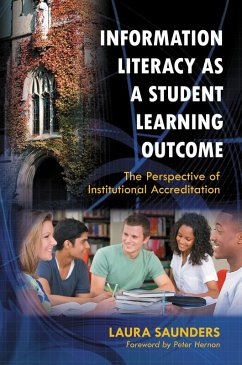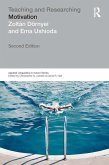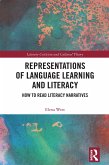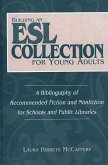Laura Saunders
Information Literacy as a Student Learning Outcome (eBook, PDF)
The Perspective of Institutional Accreditation
45,95 €
45,95 €
inkl. MwSt.
Sofort per Download lieferbar

23 °P sammeln
45,95 €
Als Download kaufen

45,95 €
inkl. MwSt.
Sofort per Download lieferbar

23 °P sammeln
Jetzt verschenken
Alle Infos zum eBook verschenken
45,95 €
inkl. MwSt.
Sofort per Download lieferbar
Alle Infos zum eBook verschenken

23 °P sammeln
Laura Saunders
Information Literacy as a Student Learning Outcome (eBook, PDF)
The Perspective of Institutional Accreditation
- Format: PDF
- Merkliste
- Auf die Merkliste
- Bewerten Bewerten
- Teilen
- Produkt teilen
- Produkterinnerung
- Produkterinnerung

Bitte loggen Sie sich zunächst in Ihr Kundenkonto ein oder registrieren Sie sich bei
bücher.de, um das eBook-Abo tolino select nutzen zu können.
Hier können Sie sich einloggen
Hier können Sie sich einloggen
Sie sind bereits eingeloggt. Klicken Sie auf 2. tolino select Abo, um fortzufahren.

Bitte loggen Sie sich zunächst in Ihr Kundenkonto ein oder registrieren Sie sich bei bücher.de, um das eBook-Abo tolino select nutzen zu können.
This nationwide analysis documents how institutions of higher education are responding to demands for accountability and transparency by implementing and assessing learning goals for information literacy. Stakeholders in higher education across the country-including students, parents, research and policy organizations, and government agencies-are demanding greater accountability and transparency from institutions in how they are promoting quality and improvement in colleges and universities. Indeed, as the cost of tuition rises, colleges and universities as well as the organizations which…mehr
- Geräte: PC
- mit Kopierschutz
- eBook Hilfe
- Größe: 2.33MB
Andere Kunden interessierten sich auch für
![Books and Reading in the Lives of Notable Americans (eBook, PDF) Books and Reading in the Lives of Notable Americans (eBook, PDF)]() John McCrossanBooks and Reading in the Lives of Notable Americans (eBook, PDF)47,95 €
John McCrossanBooks and Reading in the Lives of Notable Americans (eBook, PDF)47,95 €![Teaching and Researching: Motivation (eBook, PDF) Teaching and Researching: Motivation (eBook, PDF)]() Zoltán DörnyeiTeaching and Researching: Motivation (eBook, PDF)38,95 €
Zoltán DörnyeiTeaching and Researching: Motivation (eBook, PDF)38,95 €![Representations of Language Learning and Literacy (eBook, PDF) Representations of Language Learning and Literacy (eBook, PDF)]() Elena WestRepresentations of Language Learning and Literacy (eBook, PDF)41,95 €
Elena WestRepresentations of Language Learning and Literacy (eBook, PDF)41,95 €![Reading Women (eBook, PDF) Reading Women (eBook, PDF)]() Nanci Milone HillReading Women (eBook, PDF)31,95 €
Nanci Milone HillReading Women (eBook, PDF)31,95 €![Get Those Guys Reading! (eBook, PDF) Get Those Guys Reading! (eBook, PDF)]() Kathleen A. BaxterGet Those Guys Reading! (eBook, PDF)35,95 €
Kathleen A. BaxterGet Those Guys Reading! (eBook, PDF)35,95 €![Building an ESL Collection for Young Adults (eBook, PDF) Building an ESL Collection for Young Adults (eBook, PDF)]() Laura MccafferyBuilding an ESL Collection for Young Adults (eBook, PDF)42,95 €
Laura MccafferyBuilding an ESL Collection for Young Adults (eBook, PDF)42,95 €![Stories NeverEnding (eBook, PDF) Stories NeverEnding (eBook, PDF)]() Jan IrvingStories NeverEnding (eBook, PDF)25,95 €
Jan IrvingStories NeverEnding (eBook, PDF)25,95 €-
-
-
This nationwide analysis documents how institutions of higher education are responding to demands for accountability and transparency by implementing and assessing learning goals for information literacy. Stakeholders in higher education across the country-including students, parents, research and policy organizations, and government agencies-are demanding greater accountability and transparency from institutions in how they are promoting quality and improvement in colleges and universities. Indeed, as the cost of tuition rises, colleges and universities as well as the organizations which accredit them are coming under increased scrutiny. Logically, student learning outcomes, assessment, and accreditation are all constantly under the magnifying glass. Information Literacy as a Student Learning Outcome: The Perspective of Institutional Accreditation fills a gap in the current literature by inspecting how institutions nationwide are fulfilling accreditation standards in the area of information literacy. While the bulk of the book looks at institutions accredited by the Middle States Commission on Higher Education, all six of the regional accreditation areas are addressed. The author also conducted campus visits and interviews at selected institutions in order to provide a more in-depth analysis of these institutions' programs for information literacy.
Produktdetails
- Produktdetails
- Verlag: Bloomsbury Publishing Inc
- Seitenzahl: 300
- Altersempfehlung: ab 7 Jahre
- Erscheinungstermin: 29. Juni 2011
- Englisch
- ISBN-13: 9781598848533
- Artikelnr.: 37966788
- Verlag: Bloomsbury Publishing Inc
- Seitenzahl: 300
- Altersempfehlung: ab 7 Jahre
- Erscheinungstermin: 29. Juni 2011
- Englisch
- ISBN-13: 9781598848533
- Artikelnr.: 37966788
- Herstellerkennzeichnung Die Herstellerinformationen sind derzeit nicht verfügbar.
Laura Saunders is associate professor at Simmons University School of Library and Information Science, teaching in the areas of reference, instruction, and academic libraries. Prior to earning her PhD, she worked as an academic reference librarian and in circulation at a public library. She earned her master's of library and information science and her PhD at Simmons University.
Illustrations Foreword Acknowledgments 1. Introduction A Brief History of
Information Literacy Development of Information Literacy Information
Literacy as a Learning Outcome Assessment of Information Literacy Learning
Outcomes Debating Definitions Conclusion 2. Accreditation and Higher
Education in the United States Overview of Accreditation A Brief History of
Accreditation in the United States Overview The Council on Higher Education
Accreditation Accreditation Process Stakeholders Interested in Learning
Outcomes Direct Stakeholders Indirect Stakeholders Purposes of
Accreditation Accountability Improving the Quality of the Educational
Experience Assessment Outcomes Assessment Assessment for Quality
Improvement Information Literacy as a Learning Outcome Middle States
Commission on Higher Education Conclusion 3. The Study's Reflective Inquiry
and Procedures Problem Statement Literature Review The Library: Roles and
Responses Collaboration/Partnerships for Instruction and Assessment
Accountability and Transparency Institutional Culture Leadership Procedures
Population Methodology Limitations Conclusion 4. Quantitative Findings of
Institutes Accredited by the Middle States Commission and Case Study
Selection Response Rates Age of Report Incidence of Information Literacy
Information Literacy: Uses and Contexts Integration at Various Levels
Division of Responsibilities and Attention to Competency Areas Information
Literacy: Themes Collaboration Assessment Accountability and Transparency
Institutional Culture Leadership Case Study Selection Conclusion 5.
Quantitative Findings for Phase Four: The Remaining Five Regions
Differences in Regional Accreditation Incidence of Information Literacy
Information Literacy in Context Integration at Various Levels Division of
Responsibility and Attention to Competency Areas Information Literacy:
Themes Collaboration Assessment Accountability and Transparency
Institutional Culture Leadership Regional Differences Revisited Quality
Enhancement Plans for Information Literacy Conclusion 6. Updates to the
Middle States Commission Region Updated Findings Collaboration Assessment,
Accountability, and Transparency Institutional Culture and Leadership
Comparison of Successive Self-Study Documents Conclusion 7. Collaboration
Framework for Information Literacy Collaboration A Typology of
Collaboration Course-Level Collaboration Program-Level Collaboration
Institutional-Level Collaboration Cross-Campus Collaboration Collaboration
at Degree Levels Division of Responsibilities Barriers to Collaboration
Status of the Library and Librarian Faculty Reticence Segregation of
Information Literacy Understanding Information Literacy Understanding Roles
Culture and Collaboration Benefits of Collaboration Building Bridges
Conclusion 8. Assessment of Learning Outcomes for Information Literacy
Information Literacy Assessment: Its Contexts Course-Level Assessment
Program-Level Assessment Institutional-Level Assessment Defining Learning
Outcomes for Information Literacy Types of Assessment Activities Assessment
at Case Study Institutions Assessment for Student Outcomes Uses of
Assessment Data Establishing a Program Conclusion 9. Accountability and
Transparency Individual Responses and Levels of Transparency Reasons for
Declining to Participate Higher Levels of Transparency Accountability,
Transparency, and Information Literacy Accountability and Transparency: A
Broader Perspective Stakeholder Demands Accountability: Measuring
Achievement Costs and Outcomes Concerns about Student Learning
Transparency: Quality and Accessibility of Information Accreditation
Concerns and Responses International Context and Competition The Higher
Education Act Institutional Concerns and Responses Conclusion 10.
Institutional Culture Definitions of Institutional and Organizational
Cultures Interactions Across and Among Cultures Importance of Cultural
Sensitivity Conclusion 11. Leadership for Information Literacy Definitions
of Leadership Teacher Leaders Librarians and Leadership Relationship
Building Institutional Understanding and Involvement Creating a Shared
Vision Taking Risks Support from Administrators and Faculty Incentives and
Rewards External Pressure Conclusion 12. Looking to the Future Information
Literacy in Context Current Issues Ownership and Information Literacy
Leadership and Information Literacy Assessment Assessment for Improvement
Moving Forward The Role of Accreditation Further Research Expectations and
Reality Conclusion Bibliography Index
Information Literacy Development of Information Literacy Information
Literacy as a Learning Outcome Assessment of Information Literacy Learning
Outcomes Debating Definitions Conclusion 2. Accreditation and Higher
Education in the United States Overview of Accreditation A Brief History of
Accreditation in the United States Overview The Council on Higher Education
Accreditation Accreditation Process Stakeholders Interested in Learning
Outcomes Direct Stakeholders Indirect Stakeholders Purposes of
Accreditation Accountability Improving the Quality of the Educational
Experience Assessment Outcomes Assessment Assessment for Quality
Improvement Information Literacy as a Learning Outcome Middle States
Commission on Higher Education Conclusion 3. The Study's Reflective Inquiry
and Procedures Problem Statement Literature Review The Library: Roles and
Responses Collaboration/Partnerships for Instruction and Assessment
Accountability and Transparency Institutional Culture Leadership Procedures
Population Methodology Limitations Conclusion 4. Quantitative Findings of
Institutes Accredited by the Middle States Commission and Case Study
Selection Response Rates Age of Report Incidence of Information Literacy
Information Literacy: Uses and Contexts Integration at Various Levels
Division of Responsibilities and Attention to Competency Areas Information
Literacy: Themes Collaboration Assessment Accountability and Transparency
Institutional Culture Leadership Case Study Selection Conclusion 5.
Quantitative Findings for Phase Four: The Remaining Five Regions
Differences in Regional Accreditation Incidence of Information Literacy
Information Literacy in Context Integration at Various Levels Division of
Responsibility and Attention to Competency Areas Information Literacy:
Themes Collaboration Assessment Accountability and Transparency
Institutional Culture Leadership Regional Differences Revisited Quality
Enhancement Plans for Information Literacy Conclusion 6. Updates to the
Middle States Commission Region Updated Findings Collaboration Assessment,
Accountability, and Transparency Institutional Culture and Leadership
Comparison of Successive Self-Study Documents Conclusion 7. Collaboration
Framework for Information Literacy Collaboration A Typology of
Collaboration Course-Level Collaboration Program-Level Collaboration
Institutional-Level Collaboration Cross-Campus Collaboration Collaboration
at Degree Levels Division of Responsibilities Barriers to Collaboration
Status of the Library and Librarian Faculty Reticence Segregation of
Information Literacy Understanding Information Literacy Understanding Roles
Culture and Collaboration Benefits of Collaboration Building Bridges
Conclusion 8. Assessment of Learning Outcomes for Information Literacy
Information Literacy Assessment: Its Contexts Course-Level Assessment
Program-Level Assessment Institutional-Level Assessment Defining Learning
Outcomes for Information Literacy Types of Assessment Activities Assessment
at Case Study Institutions Assessment for Student Outcomes Uses of
Assessment Data Establishing a Program Conclusion 9. Accountability and
Transparency Individual Responses and Levels of Transparency Reasons for
Declining to Participate Higher Levels of Transparency Accountability,
Transparency, and Information Literacy Accountability and Transparency: A
Broader Perspective Stakeholder Demands Accountability: Measuring
Achievement Costs and Outcomes Concerns about Student Learning
Transparency: Quality and Accessibility of Information Accreditation
Concerns and Responses International Context and Competition The Higher
Education Act Institutional Concerns and Responses Conclusion 10.
Institutional Culture Definitions of Institutional and Organizational
Cultures Interactions Across and Among Cultures Importance of Cultural
Sensitivity Conclusion 11. Leadership for Information Literacy Definitions
of Leadership Teacher Leaders Librarians and Leadership Relationship
Building Institutional Understanding and Involvement Creating a Shared
Vision Taking Risks Support from Administrators and Faculty Incentives and
Rewards External Pressure Conclusion 12. Looking to the Future Information
Literacy in Context Current Issues Ownership and Information Literacy
Leadership and Information Literacy Assessment Assessment for Improvement
Moving Forward The Role of Accreditation Further Research Expectations and
Reality Conclusion Bibliography Index
Illustrations Foreword Acknowledgments 1. Introduction A Brief History of
Information Literacy Development of Information Literacy Information
Literacy as a Learning Outcome Assessment of Information Literacy Learning
Outcomes Debating Definitions Conclusion 2. Accreditation and Higher
Education in the United States Overview of Accreditation A Brief History of
Accreditation in the United States Overview The Council on Higher Education
Accreditation Accreditation Process Stakeholders Interested in Learning
Outcomes Direct Stakeholders Indirect Stakeholders Purposes of
Accreditation Accountability Improving the Quality of the Educational
Experience Assessment Outcomes Assessment Assessment for Quality
Improvement Information Literacy as a Learning Outcome Middle States
Commission on Higher Education Conclusion 3. The Study's Reflective Inquiry
and Procedures Problem Statement Literature Review The Library: Roles and
Responses Collaboration/Partnerships for Instruction and Assessment
Accountability and Transparency Institutional Culture Leadership Procedures
Population Methodology Limitations Conclusion 4. Quantitative Findings of
Institutes Accredited by the Middle States Commission and Case Study
Selection Response Rates Age of Report Incidence of Information Literacy
Information Literacy: Uses and Contexts Integration at Various Levels
Division of Responsibilities and Attention to Competency Areas Information
Literacy: Themes Collaboration Assessment Accountability and Transparency
Institutional Culture Leadership Case Study Selection Conclusion 5.
Quantitative Findings for Phase Four: The Remaining Five Regions
Differences in Regional Accreditation Incidence of Information Literacy
Information Literacy in Context Integration at Various Levels Division of
Responsibility and Attention to Competency Areas Information Literacy:
Themes Collaboration Assessment Accountability and Transparency
Institutional Culture Leadership Regional Differences Revisited Quality
Enhancement Plans for Information Literacy Conclusion 6. Updates to the
Middle States Commission Region Updated Findings Collaboration Assessment,
Accountability, and Transparency Institutional Culture and Leadership
Comparison of Successive Self-Study Documents Conclusion 7. Collaboration
Framework for Information Literacy Collaboration A Typology of
Collaboration Course-Level Collaboration Program-Level Collaboration
Institutional-Level Collaboration Cross-Campus Collaboration Collaboration
at Degree Levels Division of Responsibilities Barriers to Collaboration
Status of the Library and Librarian Faculty Reticence Segregation of
Information Literacy Understanding Information Literacy Understanding Roles
Culture and Collaboration Benefits of Collaboration Building Bridges
Conclusion 8. Assessment of Learning Outcomes for Information Literacy
Information Literacy Assessment: Its Contexts Course-Level Assessment
Program-Level Assessment Institutional-Level Assessment Defining Learning
Outcomes for Information Literacy Types of Assessment Activities Assessment
at Case Study Institutions Assessment for Student Outcomes Uses of
Assessment Data Establishing a Program Conclusion 9. Accountability and
Transparency Individual Responses and Levels of Transparency Reasons for
Declining to Participate Higher Levels of Transparency Accountability,
Transparency, and Information Literacy Accountability and Transparency: A
Broader Perspective Stakeholder Demands Accountability: Measuring
Achievement Costs and Outcomes Concerns about Student Learning
Transparency: Quality and Accessibility of Information Accreditation
Concerns and Responses International Context and Competition The Higher
Education Act Institutional Concerns and Responses Conclusion 10.
Institutional Culture Definitions of Institutional and Organizational
Cultures Interactions Across and Among Cultures Importance of Cultural
Sensitivity Conclusion 11. Leadership for Information Literacy Definitions
of Leadership Teacher Leaders Librarians and Leadership Relationship
Building Institutional Understanding and Involvement Creating a Shared
Vision Taking Risks Support from Administrators and Faculty Incentives and
Rewards External Pressure Conclusion 12. Looking to the Future Information
Literacy in Context Current Issues Ownership and Information Literacy
Leadership and Information Literacy Assessment Assessment for Improvement
Moving Forward The Role of Accreditation Further Research Expectations and
Reality Conclusion Bibliography Index
Information Literacy Development of Information Literacy Information
Literacy as a Learning Outcome Assessment of Information Literacy Learning
Outcomes Debating Definitions Conclusion 2. Accreditation and Higher
Education in the United States Overview of Accreditation A Brief History of
Accreditation in the United States Overview The Council on Higher Education
Accreditation Accreditation Process Stakeholders Interested in Learning
Outcomes Direct Stakeholders Indirect Stakeholders Purposes of
Accreditation Accountability Improving the Quality of the Educational
Experience Assessment Outcomes Assessment Assessment for Quality
Improvement Information Literacy as a Learning Outcome Middle States
Commission on Higher Education Conclusion 3. The Study's Reflective Inquiry
and Procedures Problem Statement Literature Review The Library: Roles and
Responses Collaboration/Partnerships for Instruction and Assessment
Accountability and Transparency Institutional Culture Leadership Procedures
Population Methodology Limitations Conclusion 4. Quantitative Findings of
Institutes Accredited by the Middle States Commission and Case Study
Selection Response Rates Age of Report Incidence of Information Literacy
Information Literacy: Uses and Contexts Integration at Various Levels
Division of Responsibilities and Attention to Competency Areas Information
Literacy: Themes Collaboration Assessment Accountability and Transparency
Institutional Culture Leadership Case Study Selection Conclusion 5.
Quantitative Findings for Phase Four: The Remaining Five Regions
Differences in Regional Accreditation Incidence of Information Literacy
Information Literacy in Context Integration at Various Levels Division of
Responsibility and Attention to Competency Areas Information Literacy:
Themes Collaboration Assessment Accountability and Transparency
Institutional Culture Leadership Regional Differences Revisited Quality
Enhancement Plans for Information Literacy Conclusion 6. Updates to the
Middle States Commission Region Updated Findings Collaboration Assessment,
Accountability, and Transparency Institutional Culture and Leadership
Comparison of Successive Self-Study Documents Conclusion 7. Collaboration
Framework for Information Literacy Collaboration A Typology of
Collaboration Course-Level Collaboration Program-Level Collaboration
Institutional-Level Collaboration Cross-Campus Collaboration Collaboration
at Degree Levels Division of Responsibilities Barriers to Collaboration
Status of the Library and Librarian Faculty Reticence Segregation of
Information Literacy Understanding Information Literacy Understanding Roles
Culture and Collaboration Benefits of Collaboration Building Bridges
Conclusion 8. Assessment of Learning Outcomes for Information Literacy
Information Literacy Assessment: Its Contexts Course-Level Assessment
Program-Level Assessment Institutional-Level Assessment Defining Learning
Outcomes for Information Literacy Types of Assessment Activities Assessment
at Case Study Institutions Assessment for Student Outcomes Uses of
Assessment Data Establishing a Program Conclusion 9. Accountability and
Transparency Individual Responses and Levels of Transparency Reasons for
Declining to Participate Higher Levels of Transparency Accountability,
Transparency, and Information Literacy Accountability and Transparency: A
Broader Perspective Stakeholder Demands Accountability: Measuring
Achievement Costs and Outcomes Concerns about Student Learning
Transparency: Quality and Accessibility of Information Accreditation
Concerns and Responses International Context and Competition The Higher
Education Act Institutional Concerns and Responses Conclusion 10.
Institutional Culture Definitions of Institutional and Organizational
Cultures Interactions Across and Among Cultures Importance of Cultural
Sensitivity Conclusion 11. Leadership for Information Literacy Definitions
of Leadership Teacher Leaders Librarians and Leadership Relationship
Building Institutional Understanding and Involvement Creating a Shared
Vision Taking Risks Support from Administrators and Faculty Incentives and
Rewards External Pressure Conclusion 12. Looking to the Future Information
Literacy in Context Current Issues Ownership and Information Literacy
Leadership and Information Literacy Assessment Assessment for Improvement
Moving Forward The Role of Accreditation Further Research Expectations and
Reality Conclusion Bibliography Index







